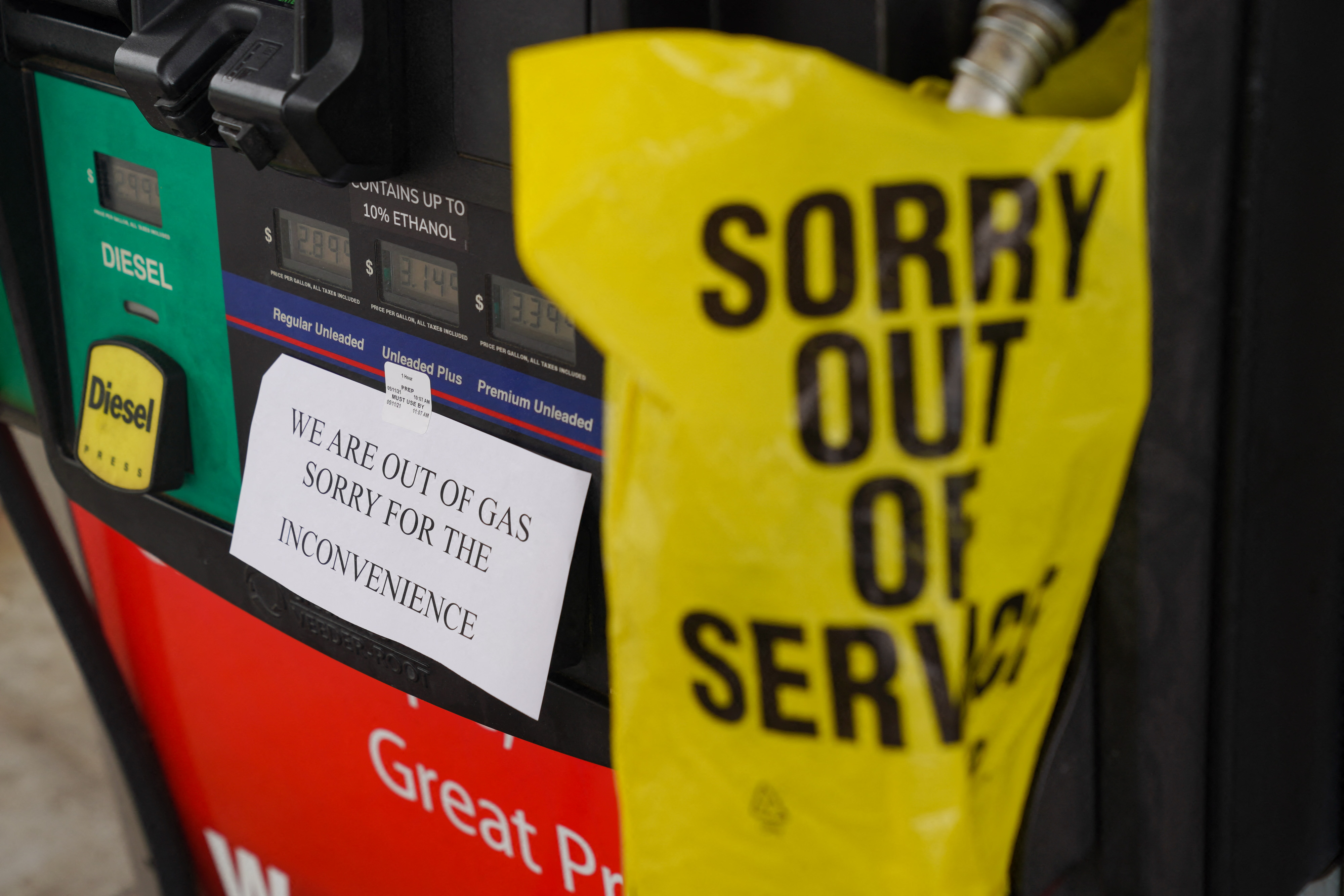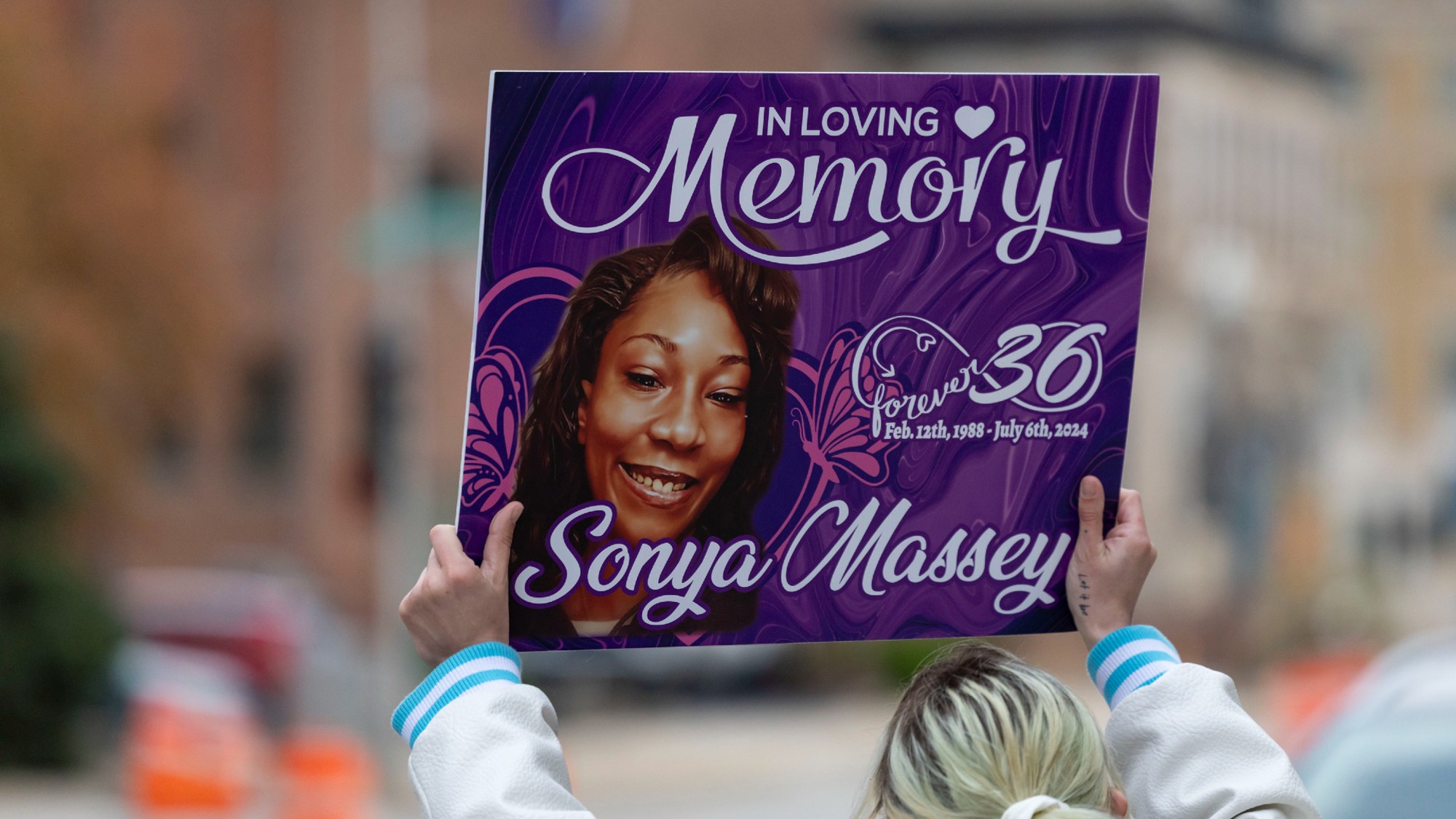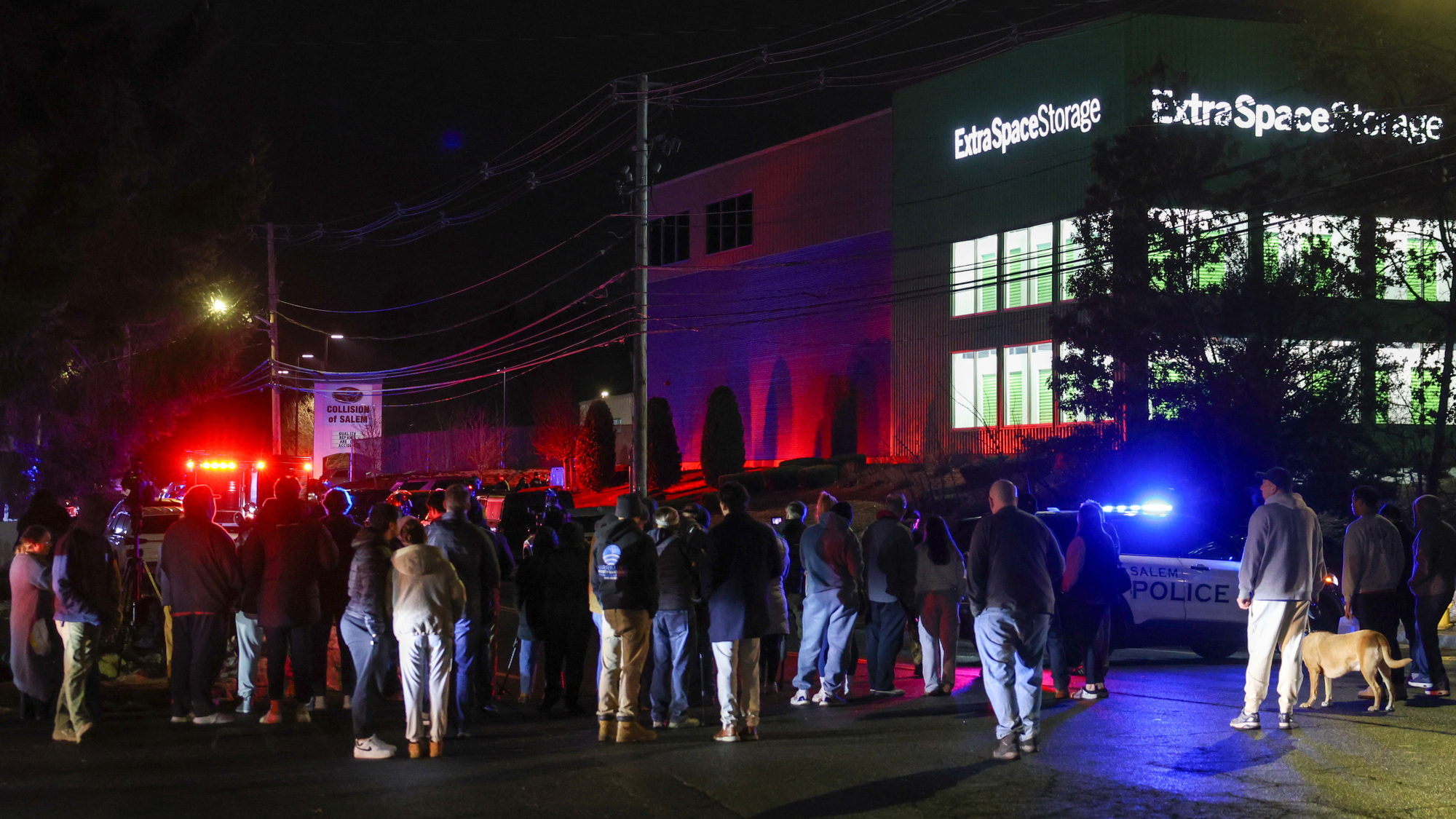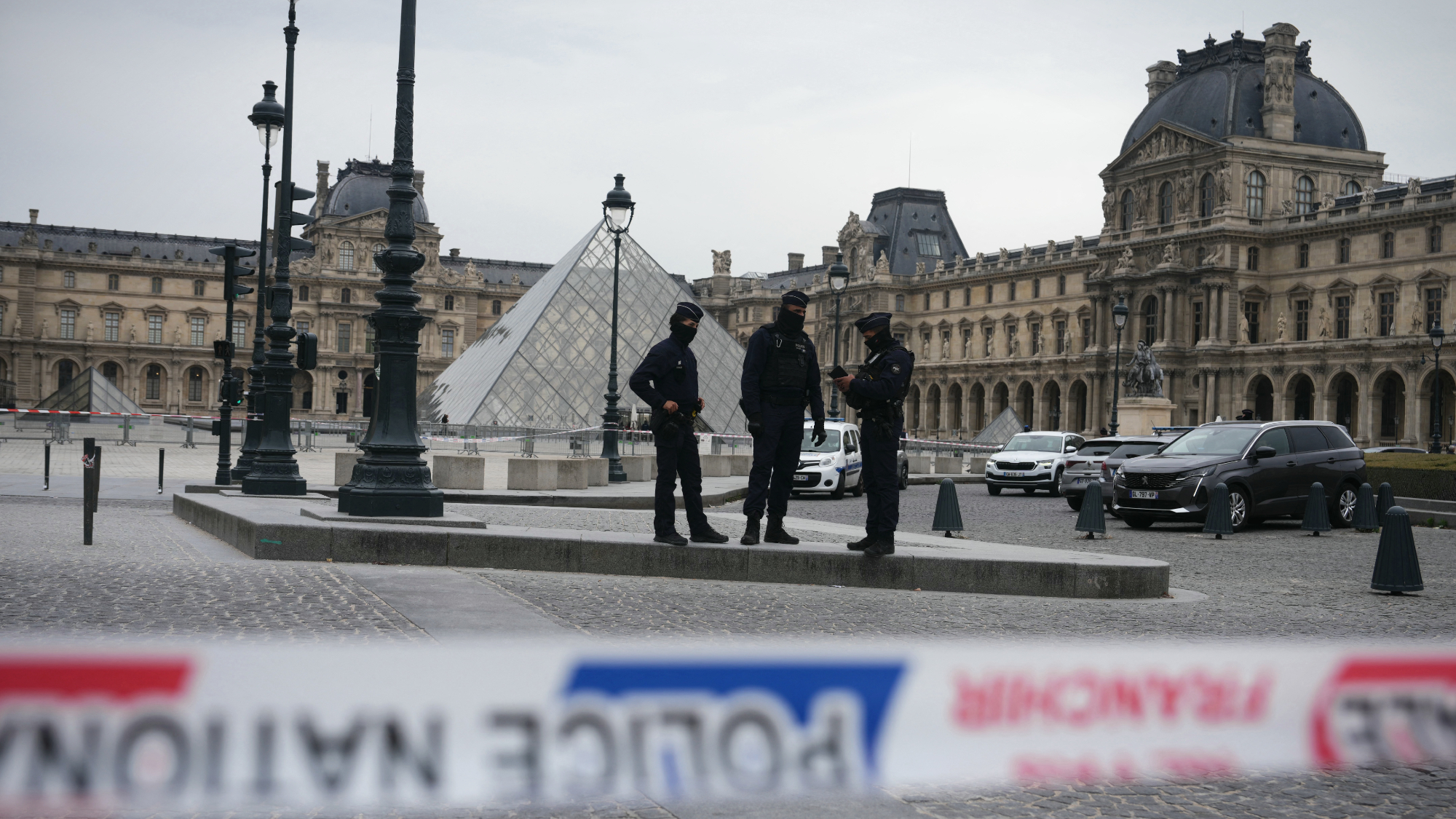Cybercrime expert suggests Colonial Pipeline's ransom was so low because DarkSide messed up


A free daily email with the biggest news stories of the day – and the best features from TheWeek.com
You are now subscribed
Your newsletter sign-up was successful
Colonial Pipeline paid the Eastern European hackers who attacked its network 75 Bitcoin, worth almost $5 million at the time of the ransom payment, The New York Times and The Wall Street Journal reported Thursday evening, backing up a report in Bloomberg News. The ransom payment to DarkSide, a group of cybercriminals in or near Russia, allowed Colonial to start restoring its network and work to reopen its massive pipeline from Texas to the East Coast, where gas stations are running out of gas amid panic buying of constrained supplies. Full restoration of gas service will take several days.
The federal government discourages such payments on the grounds they encourage further ransomware attacks. But many companies, local governments, and other organizations opt to pay the ransom because not doing so — leaving company data locked in encryption or leaked or sold on the web — would cost more, and because insurance often covers the payments.
Ransomware attacks are a big and growing problem for businesses of all size and scope. A report last month from a ransomware task force said payments rose by 311 percent in 2020 to about $350 million, paid in cryptocurrency, and the average payout was $312,493, Bloomberg reports. But ransom for large corporations like Colonial tends to be much larger, and DarkSide in particular boasts of going after the big fish.
The Week
Escape your echo chamber. Get the facts behind the news, plus analysis from multiple perspectives.

Sign up for The Week's Free Newsletters
From our morning news briefing to a weekly Good News Newsletter, get the best of The Week delivered directly to your inbox.
From our morning news briefing to a weekly Good News Newsletter, get the best of The Week delivered directly to your inbox.
Colonial "had to pay," cyber expert and digital forensics executive Ondrej Krehel told Bloomberg. “This is a cyber cancer. You want to die or you want to live? It’s not a situation where you can wait.” But the $5 million ransom was "very low," he added. "Ransom is usually around $25 million to $35 million for such a company. I think the threat actor realized they stepped on the wrong company and triggered a massive government response."
President Biden, under attack from Republicans over the gas shortages, signed an executive order to beef up cybersecurity after the Colonial attack, and he told reporters Thursday the U.S. might retaliate against the cybercriminals and pursue "a measure to disrupt their ability to operate." Eight websites associated with DarkSide were down Thursday, the Times reports, though it wasn't clear if the U.S was involved.
“We do not believe the Russian government was involved in this attack, but we do have strong reason to believe that the criminals who did the attack are living in Russia,” Biden said, adding that "responsible countries" take "decisive action against these ransomware networks."
A free daily email with the biggest news stories of the day – and the best features from TheWeek.com
Peter has worked as a news and culture writer and editor at The Week since the site's launch in 2008. He covers politics, world affairs, religion and cultural currents. His journalism career began as a copy editor at a financial newswire and has included editorial positions at The New York Times Magazine, Facts on File, and Oregon State University.
-
 5 calamitous cartoons about the Washington Post layoffs
5 calamitous cartoons about the Washington Post layoffsCartoons Artists take on a new chapter in journalism, democracy in darkness, and more
-
 Political cartoons for February 14
Political cartoons for February 14Cartoons Saturday's political cartoons include a Valentine's grift, Hillary on the hook, and more
-
 Tourangelle-style pork with prunes recipe
Tourangelle-style pork with prunes recipeThe Week Recommends This traditional, rustic dish is a French classic
-
 Maxwell pleads 5th, offers Epstein answers for pardon
Maxwell pleads 5th, offers Epstein answers for pardonSpeed Read She offered to talk only if she first received a pardon from President Donald Trump
-
 Hong Kong jails democracy advocate Jimmy Lai
Hong Kong jails democracy advocate Jimmy LaiSpeed Read The former media tycoon was sentenced to 20 years in prison
-
 Ex-Illinois deputy gets 20 years for Massey murder
Ex-Illinois deputy gets 20 years for Massey murderSpeed Read Sean Grayson was sentenced for the 2024 killing of Sonya Massey
-
 Sole suspect in Brown, MIT shootings found dead
Sole suspect in Brown, MIT shootings found deadSpeed Read The mass shooting suspect, a former Brown grad student, died of self-inflicted gunshot wounds
-
 France makes first arrests in Louvre jewels heist
France makes first arrests in Louvre jewels heistSpeed Read Two suspects were arrested in connection with the daytime theft of royal jewels from the museum
-
 Trump pardons crypto titan who enriched family
Trump pardons crypto titan who enriched familySpeed Read Binance founder Changpeng Zhao pleaded guilty in 2023 to enabling money laundering while CEO of the cryptocurrency exchange
-
 Thieves nab French crown jewels from Louvre
Thieves nab French crown jewels from LouvreSpeed Read A gang of thieves stole 19th century royal jewels from the Paris museum’s Galerie d’Apollon
-
 Arsonist who attacked Shapiro gets 25-50 years
Arsonist who attacked Shapiro gets 25-50 yearsSpeed Read Cody Balmer broke into the Pennsylvania governor’s mansion and tried to burn it down
